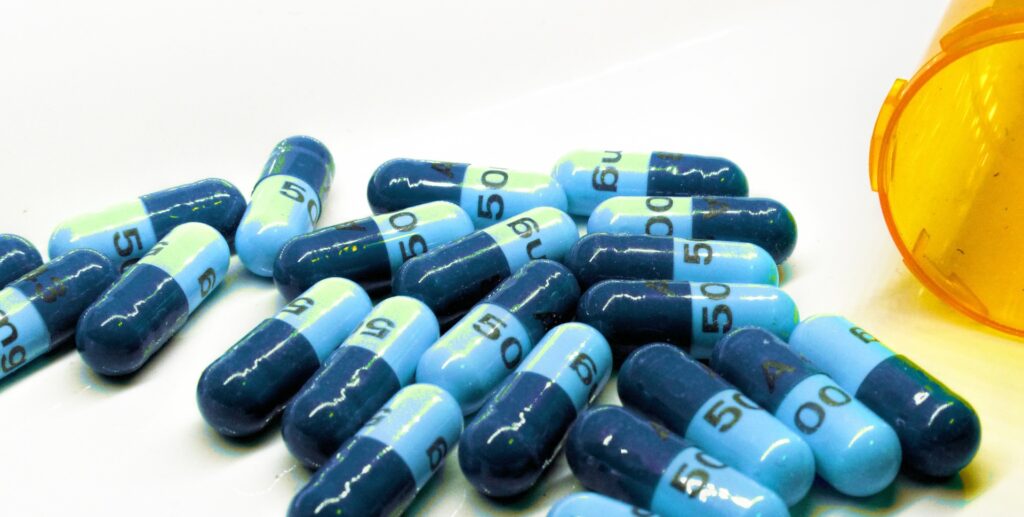25 Nov 2020 Investors’ Action on Antimicrobial Resistance to prevent the looming global catastrophe of Antimicrobial Resistance
The Covid-19 pandemic has not only demonstrated the significant impacts that human health risks have on economies and societies, but also the importance of investing in preventative healthcare, including safeguarding our ability to treat infectious diseases with existing antibiotics. As the World Health Organization calls antibiotic resistance one of the top 10 public health threats facing humanity, dozens of institutional investors are pushing for cuts in antibiotic usage.
A dozen of institutional investors, among which Amundi, Aviva Investors, CDC, Legal & General Investment Management and Northern Trust Asset Management, are joining forces to pressure food producers, restaurants, pharma companies and retailers to cut antibiotic usage and tackle the growing challenge of drug resistance. An alarming number of patients are dying because of resistance to antibiotics, and this threat is even more severe in the context of Covid-19, as the latter has boosted the mis-prescription of antibiotics also used for complications.
These investors have backed the Investor Action on Antimicrobial Resistance (AMR), which commits to scrutinize medicine and food companies’ use of antibiotics before investing and engaging with businesses so as to reduce misuse of drugs. The main objective of the AMR initiative is to leverage investors’ influence to combat drug-resistant superbugs, an urgent public health challenge responsible for at least 700,000 deaths globally each year. The alliance is supported by the UN-supported Principles for Responsible Investment (PRI) and the UK’s Department of Health and Social Care, coordinated by Farm Animal Investment Risk & Return (FAIRR). As part of the Investor Action on AMR initiative, investor partners have committed to working with FAIRR and the Access to Medicine Foundation to adopt an AMR lens when making investment decisions and engaging with investee companies, and to undertaking at least one specific outcome to help combat the growing threat of drug-resistant superbugs in humans, animals and the environment.
The main causes of antibiotic resistance are over-prescription of antibiotics, patients not finishing their treatment, over-use of antibiotics in livestock and fish farming, lack of hygiene and poor sanitation, lack of new antibiotics developed.
On the one hand, when it comes to the food chain, life-saving drugs such as colistin, which reduces infection and promote growth in animals, foster antibiotic resistance. Interfaith Center on Corporate Responsibility (ICCR) has encouraged companies to limit antibiotics use to treat the diagnosed presence of disease in animals, as antibiotics should not be used to promote animal growth, feed efficiency and routine prevention. Adopting enterprise-wide policies with global sourcing targets to phase out the use of antibiotics for growth promotion and disease prevention in the meat and poultry supply chain, as well as reporting on the number of antibiotics used annually, are just some of the provisions that could be taken to increase the transparency on antibiotics use.
On the other hand, lack of hygiene, clean water and wider social factors also spread disease in poor regions of the world, where the burden of disease is massive. Moreover, in these low and middle-income countries, drugs are far too easily and cheaply available without a prescription, and they are often of poor quality and counterfeit, thus providing inefficient active ingredients to kill the infection, fueling the development of resistant bacterial strains. In addition, patients often take incomplete courses of treatment because they cannot afford to buy the full dosage or stop earlier once they feel better.
Last, another key driver of antimicrobial resistance is the lack of new antibiotics developed, due to decreasing financial returns from research and development investment. Pharma companies need to commit to the development of new antibiotics, while governments need to provide the right “pull” incentives to attract long-term R&D investment. The idea is that of decoupling the payment to companies that develop a new drug, providing them with substantial money upfront for launching an effective innovative medicine. By de-linking volume from profit, pharma companies would be paid according to the value created and not to the number of pills, thus slowing the speed of resistance by discouraging its widespread prescription.
Concluding, antimicrobial resistance is just a threat, but, unlike Covid-19, is predictable. Therefore, investments ahead of outbreaks are needed, individual and collective responsibility has to be taken to prevent a looming global catastrophe. Investors could increasingly play a role in that sense, engaging and making business only with companies previously screened against their level of antibiotic stewardship. FAIRR, for instance, has included antibiotics as one of the 10 risks in its Protein Producer Index, thus providing a useful measure to assess companies’ antibiotic usage. As of now, 100% of Beef and Dairy companies rank as ‘High-Risk’ for antibiotic disclosures. 65% of the 60 Index companies do not disclose any information on antibiotic usage.
Only by assessing and integrating AMR risks, opportunities and impacts using a holistic and multi-sectoral One Health approach, could we safeguard society, economies and the long-term value of investment portfolios.
If you want to read more:
- https://www.iccr.org/our-issues/food-safety-and-sustainability/antibiotics-meat-production
- https://www.ft.com/content/2dfcb39a-e561-46cd-b422-f80a8394d488
- https://www.ft.com/content/1f3aecbd-ca76-4bda-9c88-d631ea2c0e4a
- https://amrinvestoraction.org/#:~:text=A%20coalition%20between%20the%20Access,to%20address%20global%20antimicrobial%20resistance
- https://www.fairr.or

